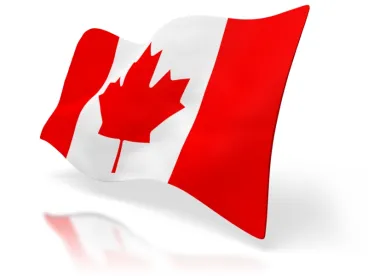As more Canadians become eligible for COVID-19 vaccines, provinces across Canada are implementing paid COVID-19 vaccination leave policies to incentivize workers to become vaccinated as soon as possible. These leave policies are being put into place as COVID-19 cases across Canada soar and the country races to vaccinate faster than infections can spread.
Paid Vaccination Leave
The provinces of British Columbia, Alberta and Saskatchewan currently have paid COVID-19 vaccination leave. Below is an overview of these provinces’ paid COVID-19 vaccination leaves.
| Saskatchewan | Alberta | British Columbia | |
| Notice required to request leave | N/A | Employee must provide the employer with “as much notice as is reasonable and practicable in the circumstances.” | Employee must provide to the employer “reasonably sufficient proof that the employee is entitled to leave” as soon as practicable. |
| Duration of leave |
|
|
A maximum of “3 hours for each request for leave.” |
| Proof that employers can request | N/A | Employers can request “reasonably sufficient proof that the employee is entitled to a leave.” | Employers can request “reasonably sufficient proof that the employee is entitled to leave.” |
| Proof that employers cannot request | Proof of COVID-19 vaccination |
|
Medical notes |
*An example of a situation that might warrant more than three hours of paid time off might be when an employee has to travel from a remote location to another destination to receive the COVID-19 vaccine.
Provincial Travel Restrictions
While Canada attempts to inoculate as many people as possible, provinces are also restricting travel. The following table briefly summarizes the current travel restrictions that exist within each province.
| Province | Restricted Travel | Work-Related Exceptions/Exemptions | Fines for Individuals |
| Alberta | N/A | N/A | N/A |
| British Columbia | Travel between the three health authority regions (the Lower Mainland and Fraser Valley region, the Northern/Interior region, and the Vancouver Island region) is prohibited. | Travel to carry out work-related purposes, including volunteer work is allowed. | $575 |
| Manitoba |
Entrance into the province is restricted. Anyone entering the province must self-isolate for 14 days.
Travel within Manitoba to rural or Northern Manitoba regions is prohibited. |
Those providing “vital services,” transporting goods and materials, or performing construction or maintenance to critical infrastructure, are not subject to the self-isolation requirements.
Workers who are delivering goods, providing services, or engaging in normal business activities in remote communities can travel into rural and Northern Manitoba. |
$1,296 |
| New Brunswick |
Entrance into the province is prohibited, except for essential reasons. All individuals who enter the province must self-isolate for 14 days.
Before entering the province, travellers must register their travel plans with the government of New Brunswick. |
Work-related travel is allowed. Non-regular travellers must self-isolate for 14 days. Regular travellers need only test negative for COVID-19 on a weekly basis. | Between $580 and $20,400, excluding surcharges. |
| Newfoundland and Labrador |
Entrance into the province is prohibited, except for extenuating circumstances as outlined by the Chief Medical Officer of Health. All individuals who enter the province must self-isolate for 14 days.
All travellers must submit the travel form within 30 days of their expected travel date. |
Essential workers, who are also exempt from the province’s 14-day quarantine requirement, are allowed to enter the province. |
Between $500 and $2,500 for the first offence.
Penalties increase with each subsequent offence. |
| Nova Scotia |
Travellers from outside Nova Scotia, Prince Edward Island, and Newfoundland and Labrador must self-isolate for 14 days.
Travellers can only enter from New Brunswick in accordance with the COVID-19 Protocol for Nova Scotia-New Brunswick Travel. |
Essential workers, who are also exempt from the province’s 14-day quarantine requirement, can enter the province. | $2,000 |
| Ontario | Entrance into Ontario from Québec or Manitoba is prohibited, except for essential reasons. | Travel to work or to transport goods is allowed. | $750 |
| Prince Edward Island |
Entrance into the province is prohibited, except for essential reasons. All individuals who enter the province must self-isolate for 14 days.
Before entering the province, non-PEI residents must register their travel plans with the government. |
Same-day travel exemptions are limited to necessary travel for work, where the worker is not entering workplaces and/or interacting with other. |
For summary convictions, $1,000 for the first offence.
Penalties increase with each subsequent offence. |
| Québec |
Entrance into Québec from Ontario, except for essential reasons, is prohibited. Travellers who enter Québec from Ontario for the sole purpose of returning to their principal or secondary residences must self-isolate for 14 days.
Travel within Québec to yellow zone regions from an orange or red zone region, or from a region subject to special emergency measures, is prohibited. Travellers who enter the yellow zone only to return to their principal or secondary residence must of must self-isolate for 14 days. |
Travel to work or to transport goods is allowed.
Travel to work or to transport goods between coloured zones is allowed. |
Between $1,000 and $6,000 |
| Saskatchewan | N/A | N/A | N/A |






 />i
/>i

